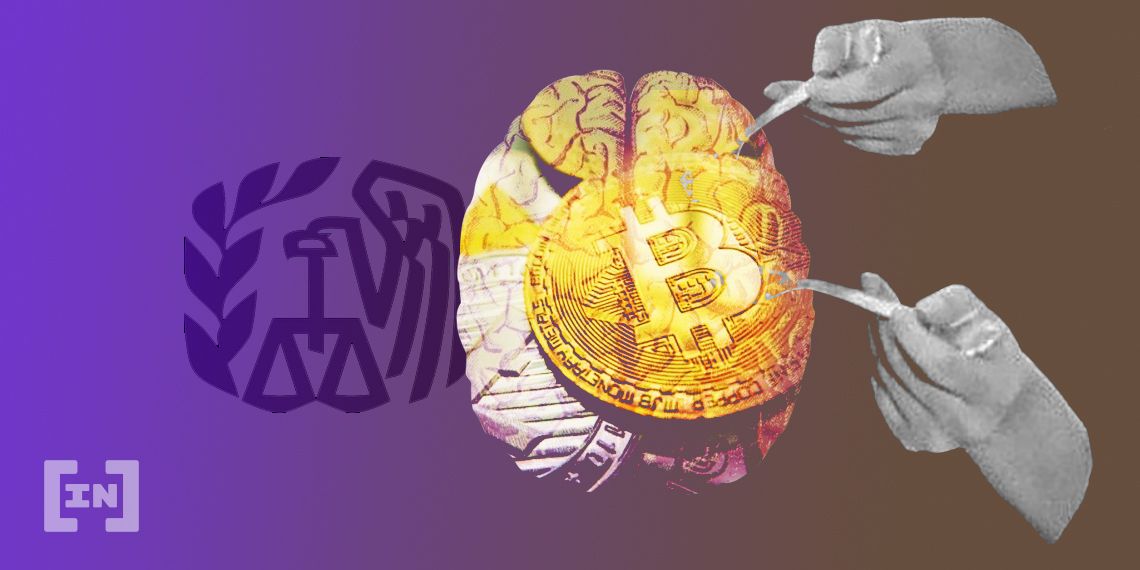Members of the Congressional Blockchain Caucus have sent a letter to the Internal Revenue Service (IRS) asking them to write a policy that supports proof of stake (PoS) technology.
Here for the Right Reasons
The members of congress include Tom Emmer, who recently spoke at length about the strength of blockchain. The letter lays out reasons why PoS tax policy must be written carefully. They frame PoS as a new technology that will support American ingenuity and, naturally, the economy. Overtaxing would limit the potential benefits of the technology, they argue. The letter, addressed to Charles P. Rettig, commissioner of the IRS, eloquently explains how blockchain and proof of stake work. An understanding of the technology is vital, since according to Emmer, most members of congress hear “bitcoin” and immediately think “Silk Road,” the illegal dark web marketplace.United Tax Laws
United States tax laws can be a little convoluted. Compliance and regulation have been the bane of U.S. crypto holders for some time. The U.S. government has long debated whether cryptocurrencies or tokens should be considered securities or currencies. Taxation on foreign exchange (FOREX) trading is particularly complicated and not favorable compared with most other types of taxation. The congressmen fear that taxing staking rewards:“as income [that] may overstate taxpayers’ actual gains.”They also warned that poorly written policy could result in a “compliance nightmare.” PoS rewards include many small transactions. Those rewards, usually the tokens themselves, could further be sold, creating the potential for taxing the same asset twice. The Blockchain Caucus includes U.S. Representatives David Schweikert, Bill Foster, Tom Emmer, and Darren Soto. It should come as no surprise that these congressmen, who support decentralized currency, also strive to limit government with favorable tax law.
Tax It Just Like Anything Else
The congressmen suggested that block rewards be taxed as discovered goods. Their letter explains that block rewards should be:“Similar to all other forms of taxpayer-created (or taxpayer-discovered) property – such as crops, minerals, livestock, artworks, and even widgets off the assembly line these tokens could be taxed when they are sold.”The Proof of Stake Alliance, an industry organization, quickly applauded the move:
“This letter offers a common-sense solution for the IRS to support the development of this promising new technology and encourage more Americans to participate in its growth.”Law professor Tonya Evans likewise praised the blockchain caucus. She linked to a thread by the Blockchain Association, another industry organization, explaining the compliance nightmare created by PoS in detail.
It’s auspicious that some U.S. members of congress understand and believe in blockchain technology. This letter may be one step closer to explaining it to the rest.Solid thread on proof-of-stake tax consequences for new tokens. Glad to see the #blockchaincaucus is staying on top of this. Thanks for sharing, @BlockchainAssn!#blockchainlaw #blockchainedu #crypto #cryptotax #EvansontheBlock https://t.co/p8u2gGs9dA
— Prof. Tonya M. Evans | #CEOofME (@IPProfEvans) August 4, 2020
Top crypto platforms in the US
Disclaimer
In adherence to the Trust Project guidelines, BeInCrypto is committed to unbiased, transparent reporting. This news article aims to provide accurate, timely information. However, readers are advised to verify facts independently and consult with a professional before making any decisions based on this content. Please note that our Terms and Conditions, Privacy Policy, and Disclaimers have been updated.
Harry Leeds
Harry Leeds is a writer, editor, and journalist who spent much time in the former USSR covering food, cryptocurrencies, and healthcare. He also translates poetry and edits the literary magazine mumbermag.me.
Harry Leeds is a writer, editor, and journalist who spent much time in the former USSR covering food, cryptocurrencies, and healthcare. He also translates poetry and edits the literary magazine mumbermag.me.
READ FULL BIO
Sponsored
Sponsored
